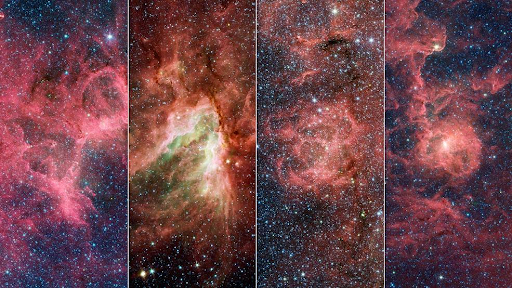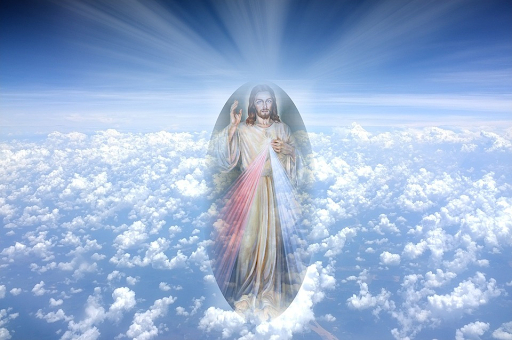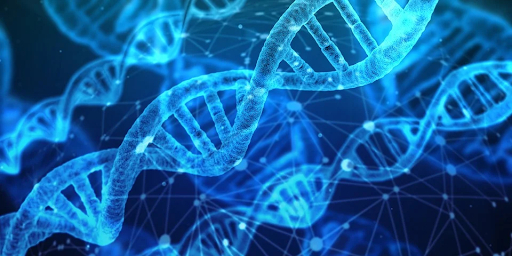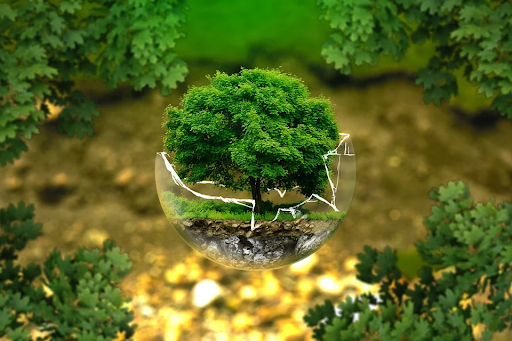Physicist Einstein did not believe that there was a Creator who created the universe. Stephen Hawking said this could be the greatest scientific discovery of all time.
Science has discovered the existence of God
Lightning, earthquakes, and even humans were once explained as being created by Gods. But now we know better. What is so fundamentally different about this discovery, and why has it shocked scientists?
Molecular biologists have discovered the intricacies of DNA that have led many modern scientists to concede that the universe appears to be part of a grand design.
Surprisingly, many of the scientists who are talking about God have no religious beliefs.
So, what are these amazing discoveries that scientists suddenly say about God? Three revolutionary discoveries from the fields of astronomy and molecular biology stand out:
- The universe had a beginning
- The universe was made for life
- Encoding DNA reveals an intelligent mind
The statements leading scientists have made about these discoveries can shock us. Let's take a look.
Origin of life
Since the dawn of civilization, people have marveled at the stars, wondering what they are and how they got there. Although on a clear night about 6,000 stars can be seen by the human eye, Hubble and other modern telescopes show that there are trillions of them clustered in more than 100 billion galaxies. Our sun is like a grain of sand among the beaches of the world.
However, before the twentieth century , most scientists believed that our Milky Way was the entire universe and that only about 100 million stars existed.

- Some scientists call the beginning of the universe a moment of creation, but most people prefer to call it the "big bang". (NASA photo)
Most scientists believe that our universe never had a beginning. They believe that mass, space, and energy always exist naturally.
But in the early twentieth century , astronomer Edwin Hubble discovered that the universe was expanding. Returning to the mathematical process, he calculated that everything in the universe, including matter, energy, space, and even time itself, actually had an original reconstruction.
Since this discovery was announced, many scientists, including Einstein, have reacted negatively. In what Einstein later called “the biggest mistake of my life,” he messed up the equations to avoid implying the original origin of the universe.
British astronomer Sir Fred Hoyle strongly opposed creationism. He sarcastically nicknamed the beginning of the universe a "big bang". He is consistent with his Steady State theory that the universe has always existed naturally. So did Einstein and other scientists, until there was a lot of evidence of Creation. Someone made them all .
Finally, in 1992, the COBE satellite experiments demonstrated that the universe did indeed have a beginning in a flash of light and incredible energy. Although some scientists call it a moment of creation, most people prefer to call it the "big bang."
Everything from Nothing
Science cannot tell us who created the universe. But some believe that it was clearly created by a Creator. The British theorist, Edward Milne, wrote a mathematical treatise on the theory of relativity, concluding by saying, 'About the beginning of the Universe, in an expanding universe, but the picture of We would not be complete without the Creator.”

- Many scientists have recognized the coincidence of the one-off creation event with the biblical account in Genesis. (Artwork: Pixabay)
Another British scientist, by the name of Edmund Whittaker, suggested that the beginning of our universe was due to "some natural divine idea that originated out of nothing".
Many scientists have been struck by the coincidence of the one-time creation event from nothing with the biblical account in Genesis .
Prior to this discovery, many scientists considered the biblical account of creation from nothing unscientific.
Though self-proclaimed an agnostic, Jastrow was forced to concede by the evidence. "We now see astronomical evidence in the biblical perspective that proves the origin of the cosmic world."
Another agnostic, George Smoot, the Nobel Prize-winning scientist in charge of the COBE experiment, concedes the same thing. “There is no doubt that the big bang that science has discovered about the beginning of the universe coincides with the Christian concept of creation out of nowhere.”
Scientists once derided the Bible as a paranoid fairy tale, but now they are admitting that the biblical concept of creation from scratch was not entirely true.
Cosmologists, who specialize in the study of the universe and its origins, soon realized that a random cosmic explosion could never bring more life than a nuclear bomb unless it precisely designed to do so. And that means a designer has to plan for it. They started using words like “Super Intelligence”, “Creator” and even “Supreme” to describe this designer. Let's see why.
Our planet is fine-tuned for life
Physicists calculate that for life to exist, gravity and other forces of nature need to be precise or our universe would not exist. If the expansion rate were a little weaker, then gravity would pull all the matter back into a "big contraction".
We're not just talking about a one or two percent reduction in the expansion rate of the universe. Stephen Hawking writes: "If the rate of expansion one second after the big bang were smaller than even a hundredth of a thousand million million, then the universe would collapse again before reaching its present size. On the other hand, if the speed If the expansion is only a fraction of what it is now, galaxies, stars and planets may never form and we wouldn't be here."
And for life to exist, the conditions in our solar system and planet also need to be engineered with extreme precision and magic . For example, we all realize that without an oxygen atmosphere, none of us can breathe. And without oxygen, water cannot exist. Without water there would be no rain for our crops. Other elements such as hydrogen, nitrogen, sodium, carbon, calcium and phosphorus are also essential for life.
But that alone is not all that is needed for life to exist. The size, temperature, relative distance, and chemical makeup of our planet, sun, and moon also need to be tailored to every detail. And there are dozens of other conditions that need to be finely tuned otherwise we wouldn't be here to think about it.
Creationist scientists may have made such a wonderful adjustment, but atheists and gravitationists have been unable to explain the “remarkable coincidences.” Theoretical physicist Stephen Hawking, an agnostic, writes: “The remarkable fact is that the values of these numbers appear to have been so finely tuned that life could evolve. like a miracle?”
Random or Magic?
But can't this tweak be considered random? After all, bettors know that even long shots can eventually win the racetrack and overturn the original result. So, what is the probability of overturning the theory that human life existed by chance from a random explosion in the history of the universe?
The theory that human life was possible from a big bang defied the laws of probability. An astronomer who calculates the odds correctly has less than a 1 in trillion chance. It would be so much easier for a blind person to pick up just one grain of sand specially marked on all the beaches in the world.
What will our reaction to such news be? That can't happen unless it's been engineered for life by someone, that's something people will need to think about. And that is what many scientists are concluding that there is some Creator behind the scenes who designed and created the universe.
This new understanding of the wondrous human life in our universe has led agnostic astronomer George Greenstein to ask: "Could it be that all of a sudden, one day, we accidentally have we discovered scientific evidence of the existence of a Supreme Being?”
As an agnostic, however, Greenstein maintained his belief in science, not the Creator, to ultimately explain our origins.
The reason why some scientists are reluctant to accept a transcendent Creator.
There is a kind of religion in science, that is the religion of a person who believes that there is order and harmony in the Universe… This religious belief of the scientist is violated when he discovers that the world has an existence. begins under conditions where the known laws of physics are invalid, and as a product of forces or circumstances that we cannot discover. When that happened, the scientist lost control. If he really finds proof that there is a Creator, he will be shaken and traumatized.
It is understandable why scientists like Greenstein and Hawking would seek explanations other than attributing our fine-tuned universe to a Creator. Hawking speculates that unseen (and unprovable) universes may exist, raising the possibility that one of them (including our Earth) is perfectly fine-tuned for existence. living.
However, since his proposal is speculative and beyond verification, it can hardly be called "scientific". Although he was also an agnostic, British astrophysicist Paul Davies rejected Hawking's ideas. "Such a belief must be based on belief rather than observation," he wrote.
Although Hawking continues to lead the way in finding supporting evidence for purely scientific theories about our origins, other scientists, including many agronomists, have acknowledged what seems to be as proof that there is a Creator. Hoyle wrote: “A common interpretation of events in the universe suggests that there must be some supernatural force, as well as chemical and biological, and that nothing is naturally born. go out".
Although Einstein was not religious and did not believe in a single God, he called the genius who designed the universe "an intelligence so superior that all human thought and action is systematic. compared to that intelligence is too small, insignificant".
DNA: The Language of Life
Astronomy is not the only field where science sees evidence of a Creator. Molecular biologists have discovered intricate designs in the microscopic world of DNA. For the last century, scientists have known that a tiny molecule called DNA is the "brain" of every cell in our bodies and every other living thing. However, the more they discovered about DNA, the more they were amazed at the brilliance of its operation.
Scientists believe that the physical world is all that exists to the human eye (materialists), like Richard Dawkins, argue that DNA evolved by natural selection without there is a Creator. However, even the most leading evolutionists admit that the origin of DNA's complexity is inexplicable.
The complexity of DNA led its co-discoverer, Francis Crick, to believe that it may never have a natural origin on earth. Crick, an evolutionist believes that life is too complex to originate on earth, and must have come from some Creator in space.
An honest man, armed with all the knowledge available to us now, can only say that in a sense the origin of life seems to be a miracle, because it is a combination of many of the right conditions for life to develop naturally.

- A small tip of DNA contains information equivalent to a stack of paperback books that could encircle the earth 5,000 times. (Artwork: Pixabay)
Scientists have discovered the coding of DNA that represents the Creator's transcendent intelligence to a level that is unimaginable to humans. A small tip of DNA contains information equivalent to a stack of paperback books that could encircle the earth 5,000 times. And DNA works like a language with its own incredibly complex coded software. Microsoft founder Bill Gates said that DNA software is "a lot more complex than any software we've ever invented".
Dawkins and other materialists believe that all this complexity stems from the process of natural selection. However, as Crick commented, natural selection could never produce the first molecule. Many scientists believe that the coding in the DNA molecule points to intelligence far beyond what could be due to some natural cause.
In the early twenty -first century , Antony Flew abruptly ended his atheism after he studied the intelligence behind DNA. Flew explains what changed his perspective.
“What I think is the fine structure of DNA suggests that a Supernormal mind must have been involved in bringing these incredibly diverse elements together. The great complexity that results to me it is the result of a Transcendent Intelligence…. It now seems to me that the discovery of more than 50 years of DNA research has provided material for a new and extremely powerful argument for the existence of a Creator,” he said.
Although Flew is not a Christian, he admits that the "software" of DNA is too complex for the average human to create. In the words of this former leading atheist, the discovery of the incredible intelligence behind DNA has “provided a new and extremely powerful argument for the existence of a Creator.” That's what made it all."
Fingerprints of the Creator
Scientists currently believe that a Creator left his "fingerprints" on the universe?
Although many scientists are still trying to eliminate the appearance of God from the universe, most of the rest accept the significant theories of this religion. In his book, The Grand Design , Stephen Hawking, who doesn't believe in a God, is trying to explain why the universe doesn't need God. However, in the face of evidence, even Hawking, must concede: “There must be religious undertones. But I think most scientists prefer to avoid the religious aspect.”
As an agnostic, Jastrow had no Christian agenda behind his conclusions. However, he freely admits that the Creator is real. Jastrow writes about the amazement and despair of scientists who think they have rejected God from their world.
Two thousand years ago, a man set foot on our planet, who claimed to have the answer to life. Although His appearance on Earth was brief, His impact has changed the world to this day. His name is Jesus Christ.
500 years ago, in the East, two other prominent figures, Buddha Shakyamuni and Lao Tzu, also came down to the earth to teach people.
Ancient records recount that these false taste buds repeatedly demonstrated creative powers beyond the laws of nature.


